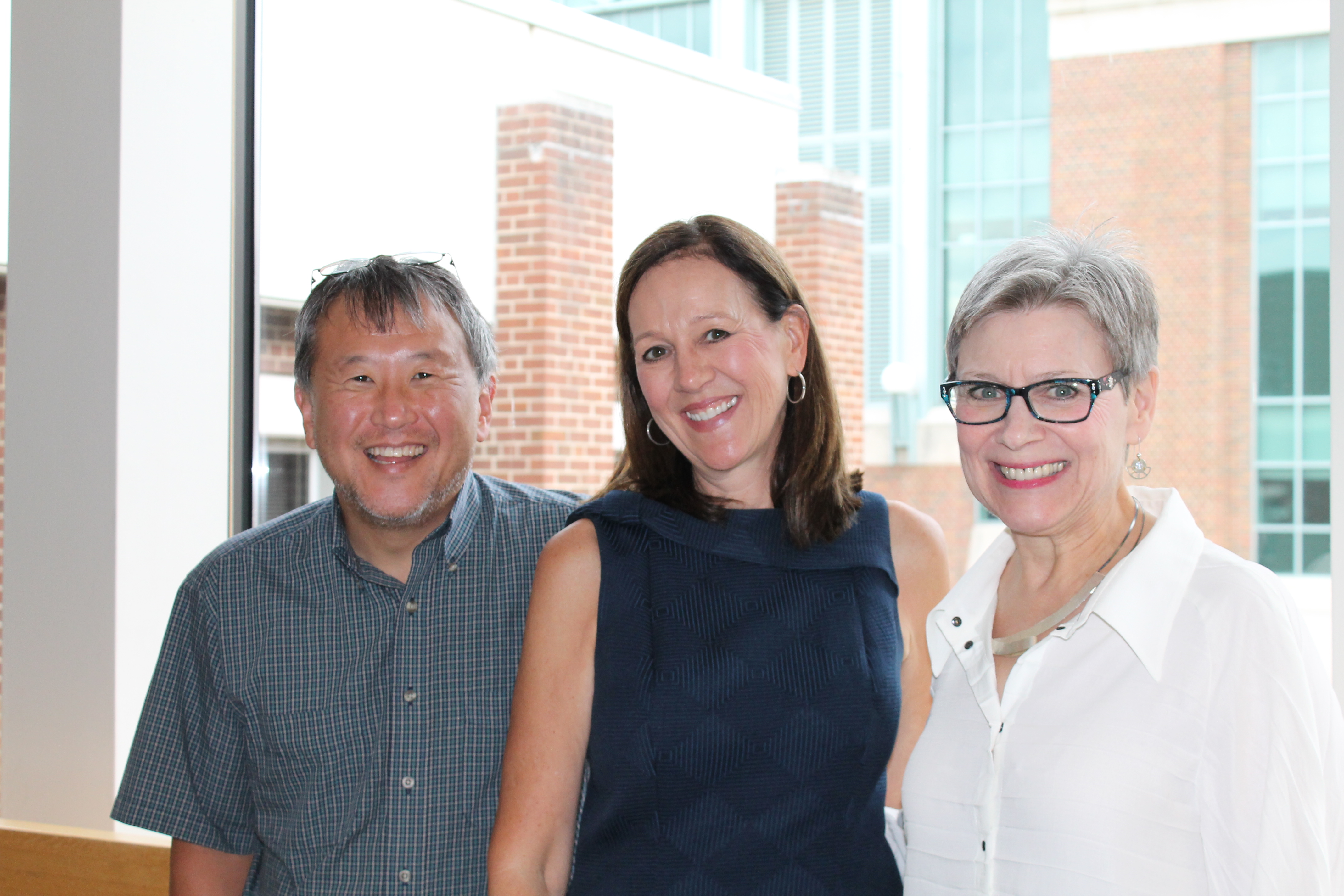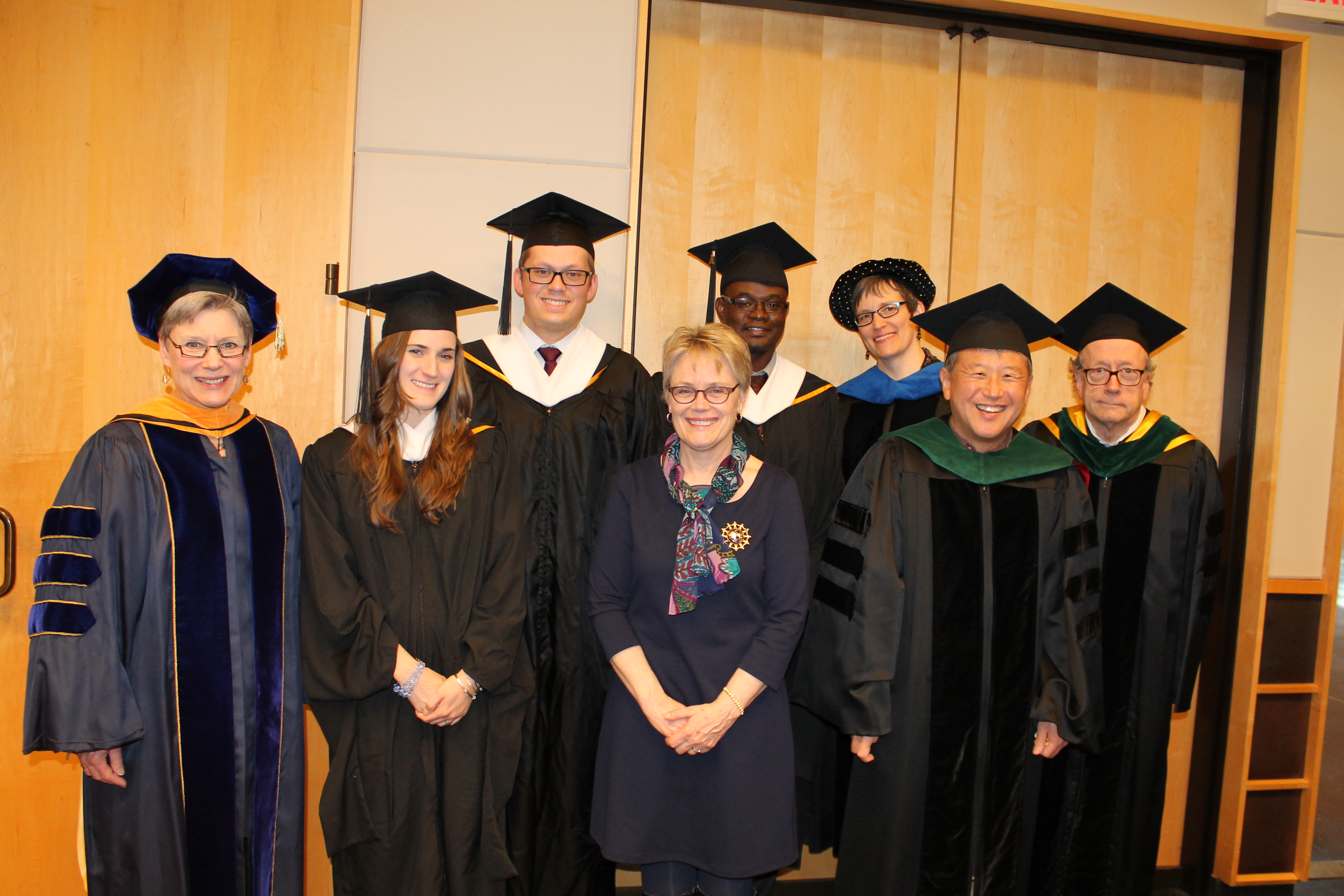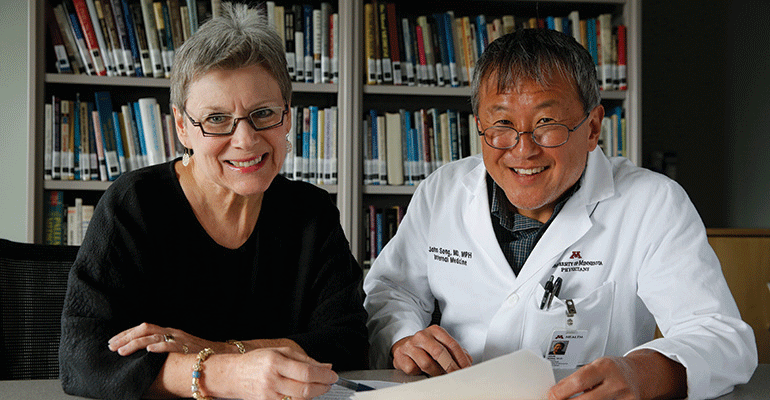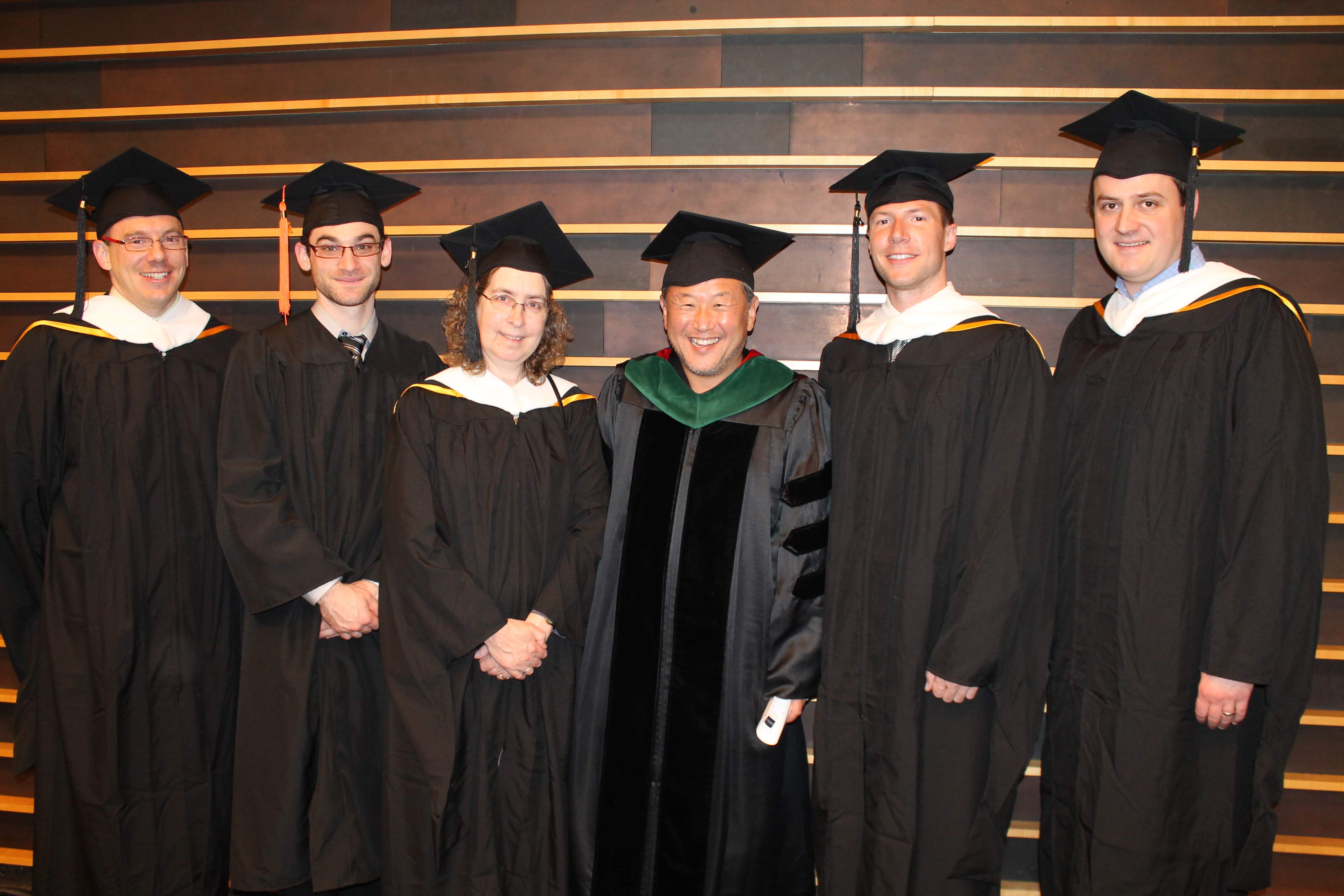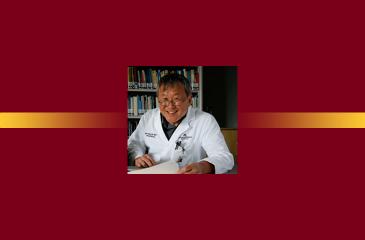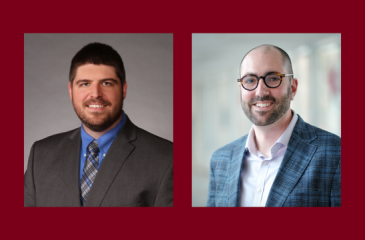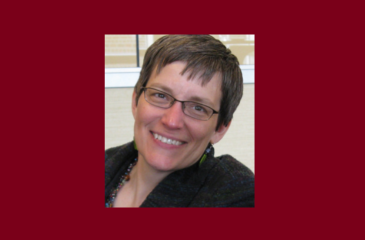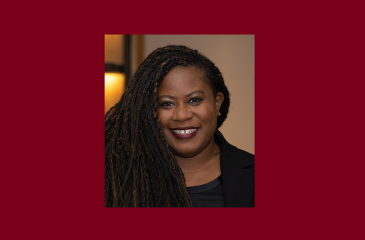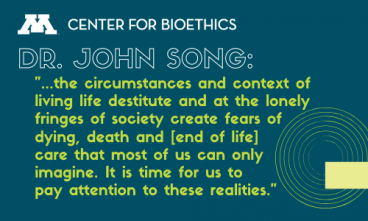
The Center for Bioethics mourns the passing of John Song, MD, MPH, MAT. John joined our faculty in the Center for Bioethics and Department of Medicine in 2000. Although he left us far too early, he nevertheless created an inspiring legacy of staunch advocacy for disadvantaged people, compassionate care for all, devoted mentorship for students, and generous collegiality.
John’s research and clinical practice reflected his strong commitment to justice and equity. His research focused primarily on the needs of homeless persons. He had a strong clinical background in caring for this population. He worked at Health Care for the Homeless (HCH) in Baltimore, MD for five years during his training. As a faculty member at the University of Minnesota, he founded and served as Medical Advisor for the Phillips Neighborhood Clinic in Minneapolis, a free health clinic staffed by volunteers and students with a dual mission of serving those without insurance and fostering meaningful educational opportunities for health professions students. He also served as faculty advisor for the Interprofessional Street Outreach Program, which provides health care at sites such as homeless shelters and food shelves in coordination with relevant community organizations.
He began his research involving the homeless population while a fellow with the ALIVE study, an NIH-funded study of injection drug users. He also convened the first US conference on homelessness and HIV/AIDS through the HIV/AIDS Bureau (HAB) of the federal Health Resources and Services Administration (HRSA). HAB/HRSA and the National HCH Coalition subsequently published “HIV/AIDS and Homelessness: Recommendations for Clinical Practice and Public Policy.” These recommendations were then distributed to all federal Ryan White and HCH grantees. He went on to conduct ground-breaking research focusing on end of life care and homelessness. These studies resulted in several publications that were among the first defining end of life care concerns among homeless persons as well as the first randomized controlled trial of an advanced care planning intervention in homeless populations, which was published in Annals of Internal Medicine. Just before he passed away, he was beginning a new research project awarded by the Rita and Alex Hillman Foundation on advance care planning and the end of life concerns of prisoners.
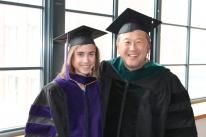
In addition to his dedication to scholarly advocacy and excellent clinical care for disenfranchised populations, John was deeply committed to education in bioethics and professionalism. He was an exceptionally talented teacher who taught some of the Center for Bioethics’ most popular courses. His students have described his courses as “excellent”, “amazing” and “thought provoking”, and commented that he was “an overall wonderful professor” who was very available and supportive of them, and who inspired them to continue to study ethics. He served as the Center’s Director of Graduate Studies. He also helped lead the ethics curriculum in the Medical School and College of Pharmacy, and routinely served as guest instructor for courses across the health professions programs at the University of Minnesota. He was appointed faculty advisor for the University of Minnesota Medical School’s chapter of the Gold Humanism Honor Society, which “recognizes students, residents and faculty who are exemplars of compassionate patient care and who serve as role models, mentors, and leaders in medicine” (https://www.gold-foundation.org/programs/ghhs/).
As a colleague, John had a remarkable gift for bringing light to our Bioethics community. He will be remembered for his positivity and warmth, his bright smile and easy laugh, his thoughtful perspective, valuable insights, and creative approaches to problems.
His work earned well-deserved recognition. He was named Phillips Neighborhood Champion by the Phillips Neighborhood Association. He also received the Leonard Tow Faculty Humanism in Medicine Award (University of Minnesota Medical School), the Outstanding Community Service Award (University of Minnesota), and the Early Distinguished Career Award (University of Minnesota Medical School). Despite his considerable accomplishments, he was humble and his work was strikingly void of ego. He was, however, always generous about recognizing the accomplishments of his colleagues and students.
He will be deeply missed, but his work will continue to promote equity and compassionate care through his influence on scholars, clinicians, policy makers, and students.
You can find Dr. Song's obituary here.
Photos
